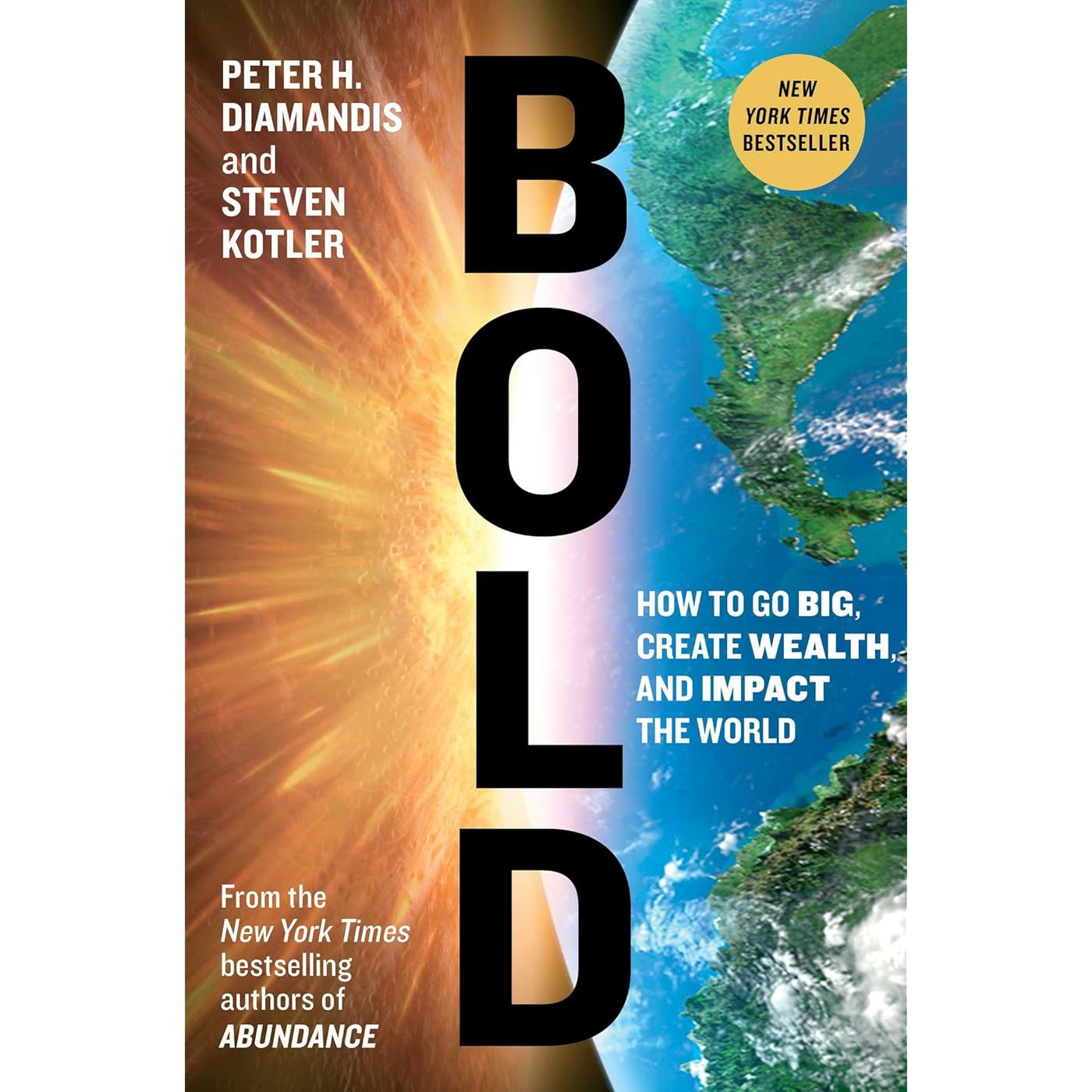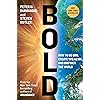Bold: How to Go Big, Create Wealth and Impact the World (Exponential Technology Series)




Buy Now, Pay Later
- – 4-month term
- – No impact on credit
- – Instant approval decision
- – Secure and straightforward checkout
Ready to go? Add this product to your cart and select a plan during checkout.
Payment plans are offered through our trusted finance partners Klarna, Affirm, Afterpay, Apple Pay, and PayTomorrow. No-credit-needed leasing options through Acima may also be available at checkout.
Learn more about financing & leasing here.
30-day refund/replacement
To qualify for a full refund, items must be returned in their original, unused condition. If an item is returned in a used, damaged, or materially different state, you may be granted a partial refund.
To initiate a return, please visit our Returns Center.
View our full returns policy here.
Recently Viewed
Description
From the coauthors of the New York Times bestseller Abundance comes their much anticipated follow-up: Bold—a radical, how-to guide for using exponential technologies, moonshot thinking, and crowd-powered tools to create extraordinary wealth while also positively impacting the lives of billions. Bold unfolds in three parts. Part One focuses on the exponential technologies that are disrupting today’s Fortune 500 companies and enabling upstart entrepreneurs to go from "I’ve got an idea" to "I run a billion-dollar company" far faster than ever before. The authors provide exceptional insight into the power of 3D printing, artificial intelligence, robotics, networks and sensors, and synthetic biology. Part Two of the book focuses on the Psychology of Bold, drawing on insights from billionaire entrepreneurs Larry Page, Elon Musk, Richard Branson, and Jeff Bezos. In addition, Diamandis reveals his entrepreneurial secrets garnered from building fifteen companies, including such audacious ventures as Singularity University, XPRIZE, Planetary Resources, and Human Longevity, Inc. Finally, Bold closes with a look at the best practices that allow anyone to leverage today’s hyper-connected crowd like never before. Here, the authors teach how to design and use incentive competitions, launch million-dollar crowdfunding campaigns to tap into ten’s of billions of dollars of capital, and finally how to build communities—armies of exponentially enabled individuals willing and able to help today’s entrepreneurs make their boldest dreams come true. Bold is both a manifesto and a manual. Itis today’s exponential entrepreneur’s go-to resource on the use of emerging technologies, thinking at scale, and the awesome power of crowd-powered tools. Read more
Publisher : Simon & Schuster (February 3, 2015)
Language : English
Hardcover : 336 pages
ISBN-10 : 1476709564
ISBN-13 : 67
Item Weight : 1.15 pounds
Dimensions : 6 x 1 x 9 inches
Best Sellers Rank: #633,141 in Books (See Top 100 in Books) #773 in Environmental Economics (Books) #3,514 in Entrepreneurship (Books) #28,397 in Social Sciences (Books)
#773 in Environmental Economics (Books):
#3,514 in Entrepreneurship (Books):
Frequently asked questions
To initiate a return, please visit our Returns Center.
View our full returns policy here.
- Klarna Financing
- Affirm Pay in 4
- Affirm Financing
- Afterpay Financing
- PayTomorrow Financing
- Financing through Apple Pay
Learn more about financing & leasing here.

























